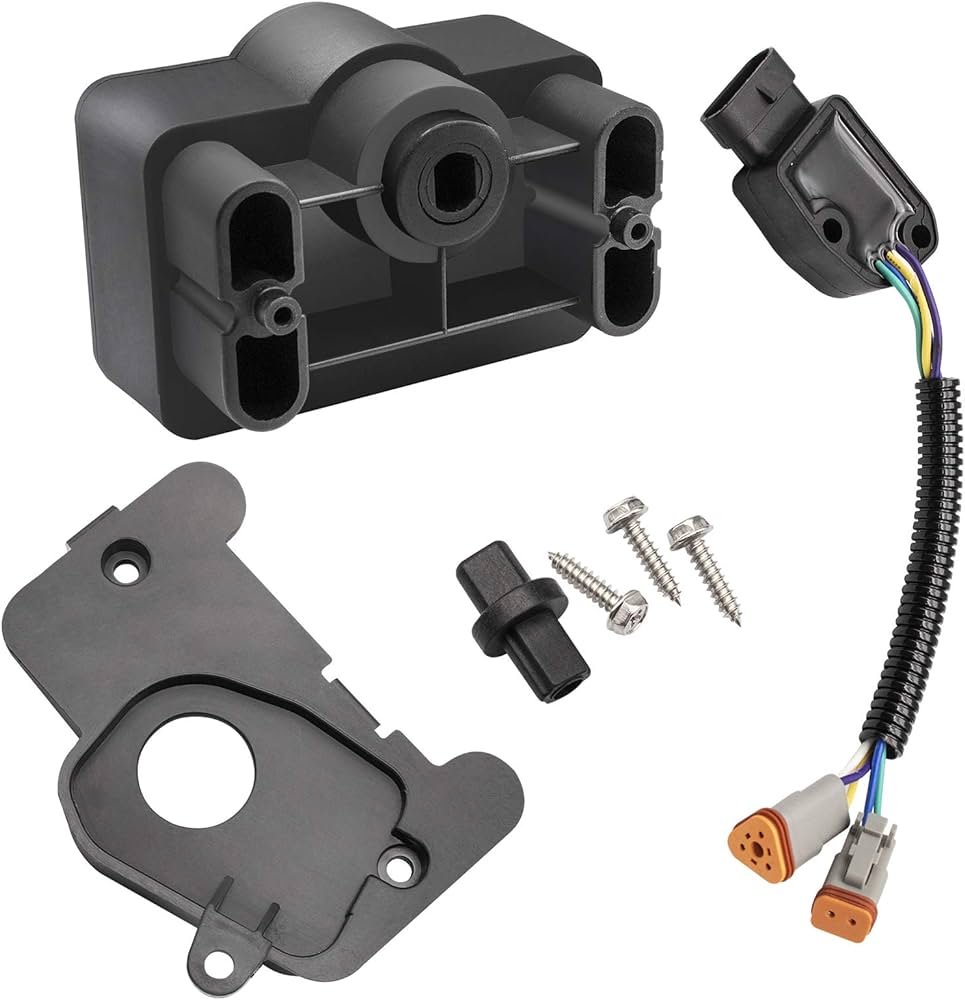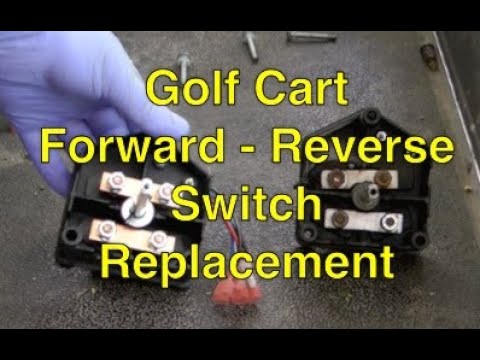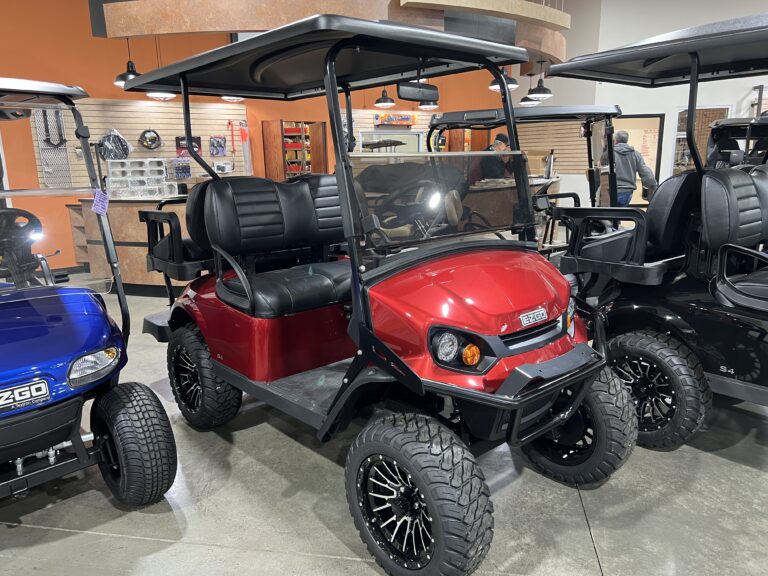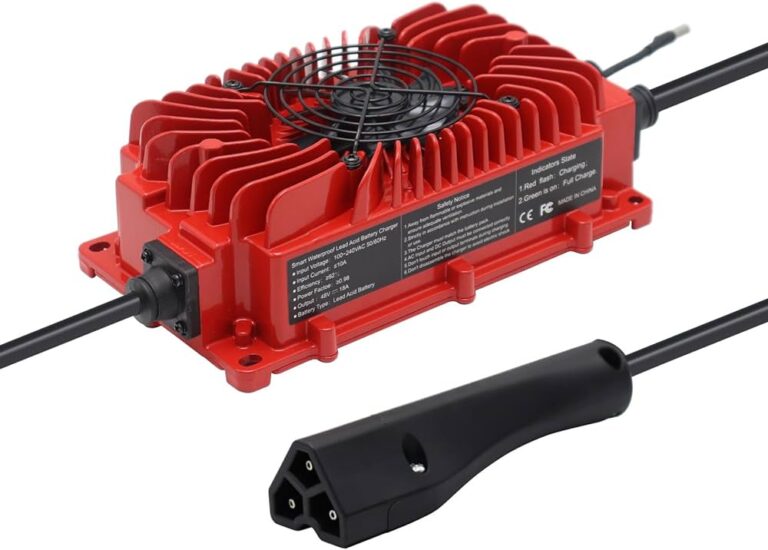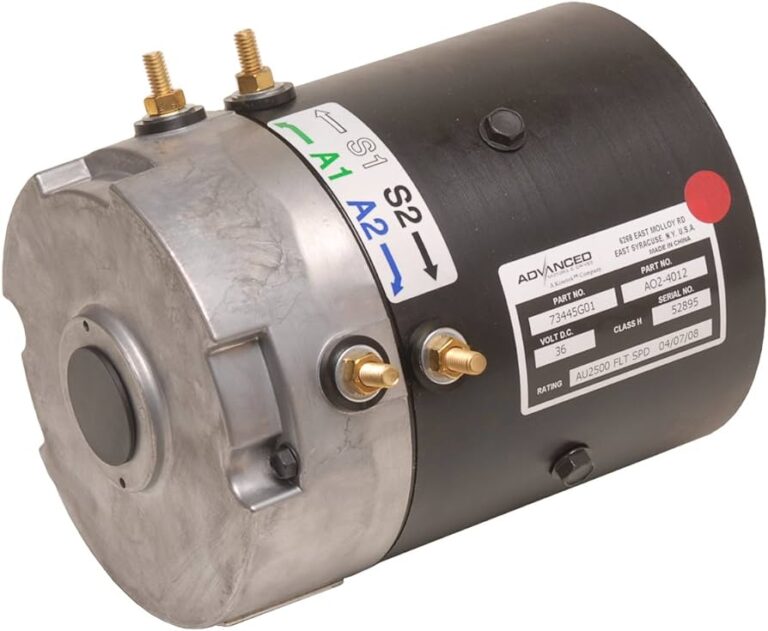Gas Golf Cart Accelerator Problems: Quick Fixes & Tips
Gas golf cart accelerator issues often stem from faulty cables or worn linkage. Regular maintenance can help prevent these problems.
Golf enthusiasts and cart owners recognize that a smooth ride hinges on the flawless operation of their vehicle’s accelerator. Gas golf carts are a preferred choice for their power and endurance on diverse terrains but can face unique challenges, such as unresponsive pedals or jerky acceleration.
Tackling these problems promptly is crucial for ensuring a safe and enjoyable experience on the golf course. Engaging in routine inspections and being attuned to the signs of wear can nip accelerator concerns in the bud. Understanding the common causes and solutions related to gas golf cart accelerator troubles is essential for maintaining optimal performance and extending the lifes¬¬pan of your cart.
Recognize The Signs Of Accelerator Issues
Gas golf carts experiencing sudden jerking or stalling may signal accelerator problems. This symptom points towards potential issues with either the accelerator cable, which may be frayed or broken, or a malfunctioning throttle sensor. It’s crucial to address these issues promptly to maintain optimal performance.
An unresponsive gas pedal often indicates a deeper problem within the cart’s acceleration system. Such scenarios suggest the pedal is not properly linked to the throttle, leading to a lack of acceleration despite pressing down on the pedal.
Riders may also encounter inconsistent acceleration, where the cart unpredictably gains or loses speed. This inconsistency can be both frustrating and dangerous, often stemming from irregular fuel flow or electrical issues affecting the engine’s operation.
Engine noise changes during acceleration should not be ignored. Unusual sounds, like sputtering or popping, can be indicative of accelerator malfunctions or even problems within the fuel system requiring immediate attention.
Quick Fixes & Tips For Accelerator Woes
Accelerator issues in gas golf carts can be a nuisance, but with the right approach, they can often be remedied swiftly. A common culprit is the throttle cable; it should be checked for proper tension and alignment. An adjustment might be needed to ensure smooth acceleration.
Clean air filters are essential for optimal performance. A clogged filter can impede airflow, causing acceleration problems. Consider cleaning or replacing the air filter to enhance the cart’s responsiveness.
Regular inspection of fuel lines can prevent potential issues. Look for any signs of clogs or leaks that might disrupt fuel flow. Addressing these problems early can save time and frustration.
Lastly, ensuring the fuel mixture and carburetor settings are correct is crucial for the accelerator to function properly. Incorrect settings can lead to poor performance and should be adjusted according to the manufacturer’s specifications.
Regular Accelerator And Engine Maintenance
Regular maintenance of your gas golf cart is crucial to ensure smooth operation of the accelerator and engine. It is recommended to schedule routine check-ups with a professional to diagnose and fix any underlying issues that could lead to accelerator problems.
Consistent lubrication of moving parts helps in minimizing friction and wear, which could otherwise lead to sluggish accelerator response or sticking. The use of high-quality lubricants tailored for your golf cart’s specifications can prolong the lifespan of its components.
Adjusting the carburetor is another key aspect of maintenance that ensures optimal golf cart performance. Precise adjustments can help in achieving the right air and fuel mixture, thus leading to a more responsive and efficient acceleration.
Best Practices For Long-term Accelerator Health
To maintain long-term accelerator health for a gas golf cart, utilizing the specified fuel type by the manufacturer is critical. Incorrect fuel can lead to performance degradation and potential damage to the system. Keeping your golf cart in a dry, temperate environment plays a pivotal role in preserving the mechanical and electrical components, thereby preventing accelerator issues before they arise.
Regular checks are essential and seeking professional maintenance is advised if unexpected behaviors are noticed. Professionals can provide thorough inspections, in-depth cleaning, and if necessary, component replacements that ensure your golf cart operates smoothly and reliably.
Identifying Complex Accelerator Faults
Recognizing signs of a failing accelerator microswitch typically revolves around inconsistent responses when pressing the gas pedal. Symptoms may include jerking motion or a complete lack of acceleration. This could point to electrical malfunctions within the microswitch, a component crucial for sending the signal necessary to engage the engine.
With regard to checking the governor for proper function, it is critical to ensure it is correctly adjusted. An improperly set governor can lead to erratic engine speed, stunting acceleration. Mechanics should verify that this important component maintains the engine’s RPMs within the manufacturer’s recommended specifications.
| Inspection Step | Action | Expected Outcome |
|---|---|---|
| Visual Examination | Check the spark plug for fouling or wear | Spark plug should be clean and gapped correctly |
| Ignition System Testing | Use a spark tester or multimeter | Consistent spark and proper electrical values |
A throughout inspection and testing of the spark plug and ignition system is essential. A faulty ignition system can mimic accelerator issues. Technicians should seek a strong and consistent spark, which signifies a healthy ignition system, directly impacting the golf cart’s acceleration capabilities.
Professional Repair Vs. Diy For Accelerator Problems
Professional repair is critical when dealing with complex accelerator issues in your gas golf cart. There are risks of exacerbating the problem or causing further damage to the golf cart’s system when attempting repairs without proper knowledge or tools. Choosing to consult a professional mechanic ensures a thorough diagnostic, use of the right parts, and a repair that lasts, preventing future malfunctions and maintaining the safety standards.
DIY golf cart repairs can be tempting for simpler issues, but it’s important to recognize your limits. Unqualified attempts at fixing accelerator problems could lead to personal injury, voided warranties, or legal liabilities, especially if the cart is used on public roads. For those keen on understanding their cart’s mechanics, various resources are available for education, from online tutorials to manuals and local workshops focused on golf cart repair and maintenance.
Gathering knowledge from credible sources empowers golf cart owners to make better decisions on when to opt for DIY repairs and when to seek professional help.

Credit: www.golfcartgarage.com
Frequently Asked Questions On Gas Golf Cart Accelerator Problems
Why Do Gas Golf Carts Lose Acceleration?
Fuel issues, such as clogged fuel lines or filters, often cause acceleration problems in gas golf carts. Regular maintenance can help avoid these issues.
What Causes Gas Golf Cart Stalling?
Stalling can result from a dirty carburetor, bad spark plugs, or issues with the fuel system. Keeping these components clean and well-maintained is crucial.
How To Troubleshoot Gas Golf Cart Acceleration?
Begin with checking the fuel system, air filters, and spark plugs. If these are clear and functioning, inspect the carburetor and ignition system for possible malfunctions.
Can Battery Issues Affect Gas Golf Cart Speed?
Yes, although less common, a weak battery may impair the ignition system, leading to reduced acceleration and overall performance in gas golf carts.
Conclusion
Tackling accelerator issues in your gas golf cart need not be daunting. With the tips and fixes outlined, you’re equipped to restore smooth operation. Regular maintenance ensures longevity and reliability. Remember, professional help is just a call away for those trickier problems.
Happy golfing, and smooth driving!
